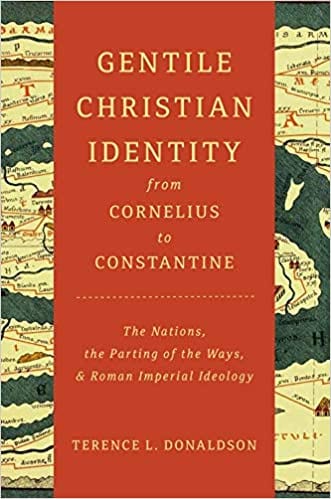Q. How to we really come to terms with these sorts of tensions?
A. In this case, it seemed to me that the most promising way of coming to terms with the tension was to recognize the element of “God’s unfinished business” in the early Christian claims. That is, claims about the significance of Christ were qualified by the expectation that his accomplishments will be brought to completion only with his “coming” in the future.
In Luke’s words, the “time of universal restoration that God announced long ago through his holy prophets” will fully arrive only at the appointed time in the future when God sends “the Messiah appointed for you, that is Jesus.” In a real sense, then, the tension between Christian claim and Jewish expectation is not an external thing but is intrinsic to the Christian claim itself. Christians themselves experience the tension between their belief in a universal savior and the all-too-apparent reality of a world in which signs of salvation are few and far between. The Christian message that “the savior has come” is at the same time the message that “this is the savior who will come.” The message concerning the fulfillment of God’s promises of salvation is also a message about God’s unfinished business. The first part of the message differentiates Christian from Jew, and opens up a space of disputed territory between them. The second part, however, puts them on shared ground—the hopeful expectation that the age of salvation promised by the God of Israel will be fully established in the future. While this does not by itself resolve the tensions between Christian claim and Jewish expectation, it at least puts them into a framework in which they might be managed. (This paragraph, together with some other material in what follows, is drawn from the concluding chapter of my little book Jews and Anti-Judaism in the New Testament.)
Even so, though, we’ve all been waiting an awfully long time for the promised time of universal restoration. And in the meantime lots of unsettling things have taken place in the relationship between gentile Christianity and the Jewish world, things that have raised new and unsettling questions. Among these questions are questions about scripture. For Christians (and I am one), God has revealed the divine purposes in a definitive way in the life, death and resurrection of Jesus. For Christians, God also continues to guide the church through scripture. How, then, are Christians to understand scripture and to interpret it in beneficial ways in the context in which we find ourselves?












